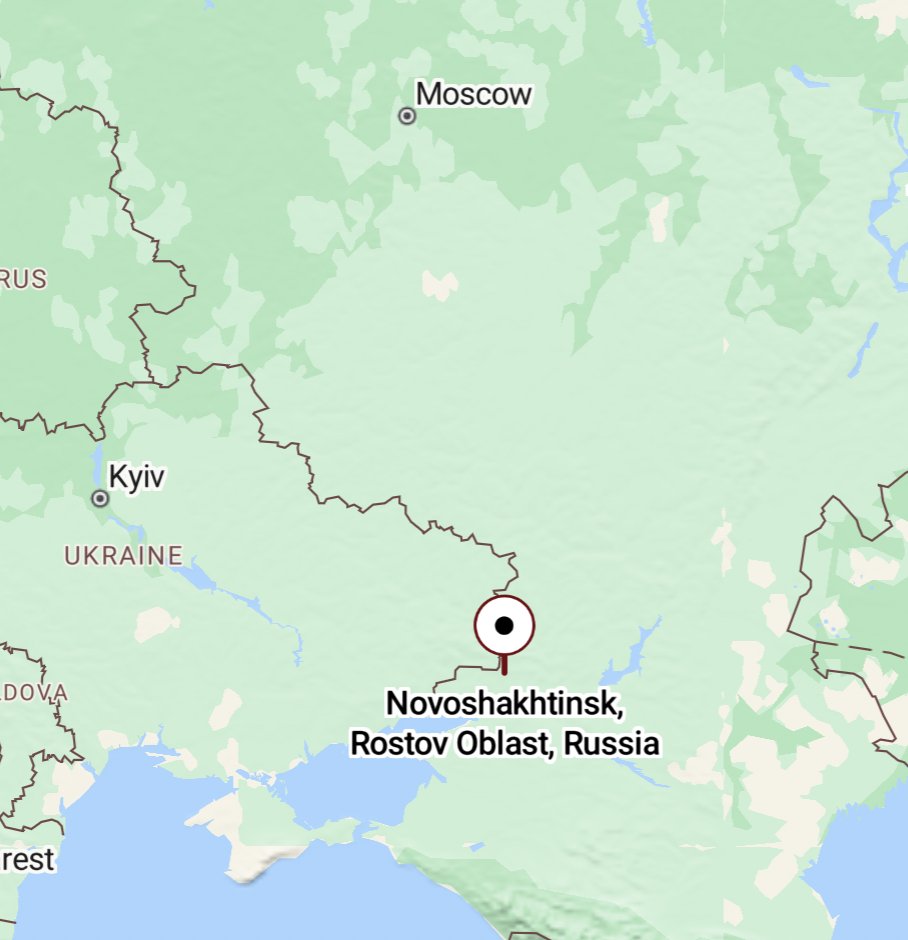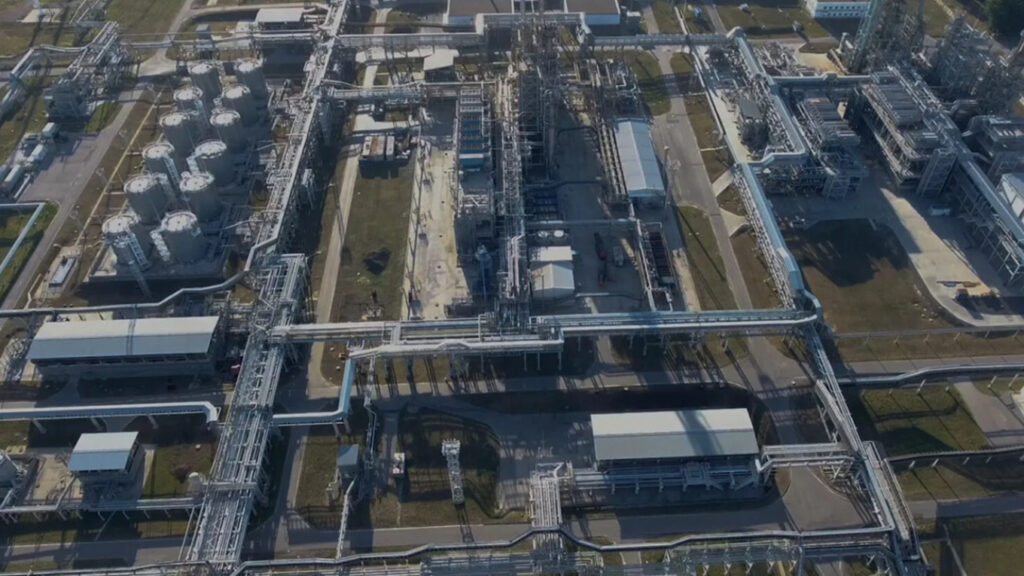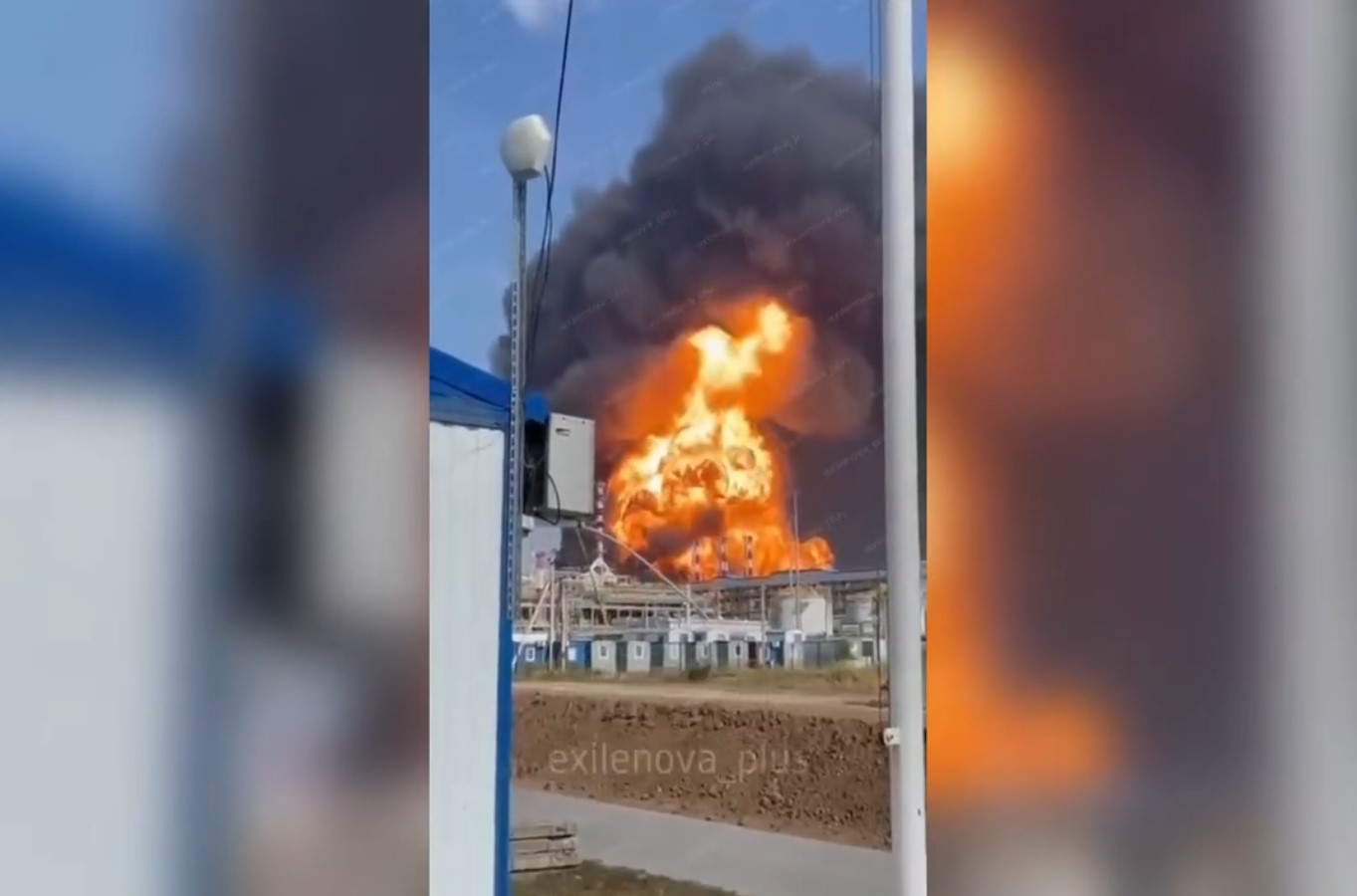A fire still burns at the Novoshakhtinsk oil refinery—Rostov Oblast’s only refinery—after it was struck by Ukrainian drones three days ago. The facility ranks among southern Russia’s largest, with a processing capacity of approximately 100,000 barrels per day (about 5 million tonnes annually).
The drone attack at Novoshakhtinsk is one in a recent series targeting Russia’s energy infrastructure. In the past weeks, several major refineries—including Syzran, Volgograd, Novokuibyshevsk, Ryazan, and Saratov—have sustained fires, temporary shutdowns, or capacity reductions following drone and missile strikes.
???? Fire still rages at the Novoshakhtinsk oil refinery in Russia’s Rostov Oblast — hit by Ukrainian drones 3 days ago.
— Euromaidan Press (@EuromaidanPress) August 23, 2025
One of southern Russia’s biggest (5M t/yr). Locals face water cuts, toxic air & 4 months unpaid wages — yet workers are still forced in.
Video: exilenova+ pic.twitter.com/0O0oKip5jB
Escalating air war and energy disruption
These assaults are part of intensified air campaigns from both sides. Ukraine has increasingly struck petroleum infrastructure—refineries, depots, pipelines—while Russia retaliates with drone and missile strikes on Ukrainian cities, civilian areas, and energy facilities.
As military expert Yigal Levin notes: “Targeting fuel infrastructure is strategic warfare—and it’s taking a heavy toll.”
Civilian hardship: water, air, and wages
Residents in Novoshakhtinsk and surrounding areas are grappling with deteriorating conditions. Water pressure has dropped sharply; some areas, like Krasny Sulin, now lack running water altogether. Air quality has become dangerously poor.
Meanwhile, workers at the refinery are still being required to come to work—despite four months of unpaid wages. Levin succinctly notes: “People are showing up—but their pay never arrives.”

How the strike happened
On the morning of 21 August, Ukrainian long-range “kamikaze” drones pierced local air defenses, despite the refinery being guarded by two Pantsir and one Tor anti-air systems. Residents reported around five explosions, which ignited the blaze.

Why this matters
- Military and economic impact: The refinery is vital for both regional fuel supply and military logistics.
- Humanitarian concerns: Communities face basic service breakdowns amid the emergency.
- Strategic priority: The targeting of energy assets underscores the growing importance of infrastructure in warfare tactics.
Read also
-
Ukraine strikes another Russian refinery, railway substation, and GRU base in occupied Crimea (video)
-
Ukraine drones turned Russia’s Druzhba oil lifeline into fire — second hit in Bryansk’s Unecha this month (video)
-
Trump blames Biden’s policy that allowed Ukraine only to defend itself and not fight back properly




